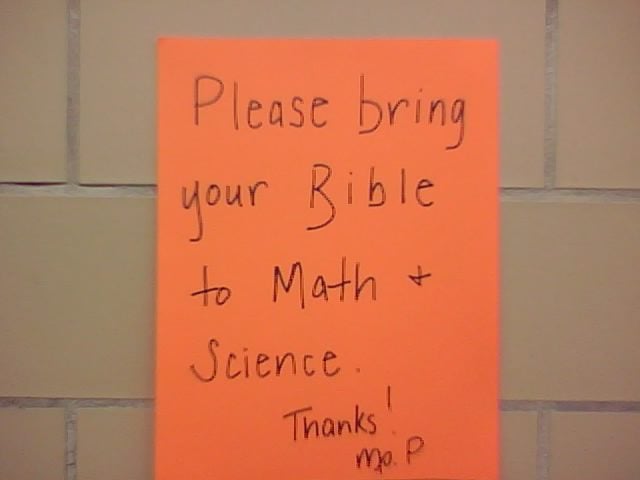How American Christianity Perpetuates
Reason #1: Skeptics Inadvertently Enable It

As I read the new March 2018 edition of Church & State, the monthly magazine of Americans United for Separation of Church and State, I was reminded of one important reason Christianity so relentlessly perpetuates in America: committed secularists often feel they must enlist Christians to advance their secular agendas. And in doing so, they inadvertently endorse faith.
This is the endemic virus of politics (religious or otherwise)—the need to get everyone possible on board, even outliers and wingnuts. Everyone makes some measure of Faustian bargain by collaborating with rivals, no matter how practical it may seem at the time.
In her first Church & State column, Americans United’s new executive director, Rachel K. Laser, proclaims a critical need for meaningful alliances among secularists and religionists to “amass the power to win the hearts and minds of policymakers, the courts and importantly, our fellow citizens.”
“Together, we will stay true to our principles and find winning strategies. … With our beautiful medley of faces on full display, we will make clear what’s at stake. We have a lot of work to do, but our diversity makes us unconquerable, and our voices carry the conviction of righteousness.”
Laser’s primary “principle” in this context arguably is keeping church and state separate. In that pursuit it’s clearly rational to join in common cause with religionists who equally fear any government involvement in Americans’ religious affairs threatens an erosion of independence for secularists and faithful alike.
However, keeping church and state at a long arm’s length, while laudable and necessary, is but a red-herring distraction from the core issue: Religion should be kept out of government because its fundamental beliefs are not real, not just because the Constitution and our Founding Fathers’ fervent fears demand it. As such, faith in supernatural beings and realms poses an unreliable—even dangerous—basis for public policy, as history has proven ad nauseum. Conversely, government should be kept out of religion not to protect its unassailable “truths” but to safeguard the inalienable right of adults to believe whatever they want, free of outside coercion, no matter how unsubstantiated or ill-advised.
In her editorial, Laser queried a state senator she knows personally and a Christian pastor, both Oklahomans, about why conservative voters in their state recently voted down a state constitutional amendment that would have allowed government placement of the Ten Commandments in public venues. Both said they believed Oklahoma voters felt the amendment could ultimately erode religious freedom by allowing governments to make religious decisions (e.g., which religion’s symbols to place where). Certainly, a rational worry.
But by making common cause secularists must necessarily appear neutral about their co-collaborators’ religious ideologies. Which is also fair enough in the context of church-state separation.
The problem is we can’t then fairly discuss the real elephant in the room: Separating church and state implies each are equivalent “non-overlapping magisteria” (Stephen J. Gould’s words) entitled to equal respect and treatment. Yet, by that reasoning, belief in Voodoo spirits and alien abductions, for instance, would also be due the same deference as our essential, tactile republican democracy.
At some point, even people who are just trying to keep government out of religion, and vice versa, should (but rarely do) unambiguously acknowledge that “religion” is actually just superstition with a more culturally agreeable name. Just because a belief is thousands of years old and still boasts billions of fervent adherents does not mean it’s not utter nonsense. Only reason can tell us that. And, regarding Christianity, reason so far has spectacularly failed confirm its particulars.
So, while I wish Rachel Laser well in keeping government out of the religion business and religion out of our public affairs, I’m concerned that religion’s indivisibly superstitious nature will continue to get a pass.
That’s one way it perpetuates in our culture, largely unnoticed, as even religious skeptics (seeking faithful allies) decline to call belief in the supernatural by its real name—superstition—thus further enabling it.














